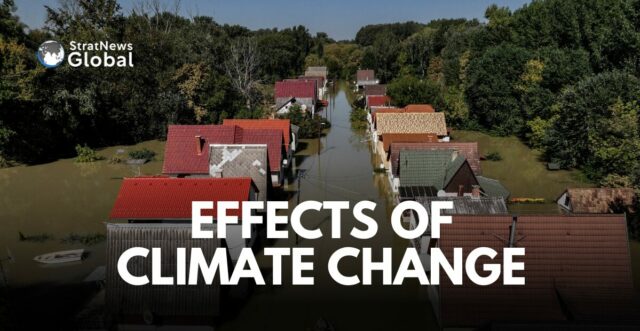Climate change has made downpours like the one that caused devastating floods in central Europe this month twice as likely to occur, a report said on Wednesday, as its scientific authors urged policymakers to act to stop global warming.
The worst flooding to hit central Europe in at least two decades has left 24 people dead, with towns strewn with mud and debris, buildings damaged, bridges collapsed and authorities left with a bill for repairs that runs into billions of dollars.
The report from World Weather Attribution, an international group of scientists that studies the effects of climate change on extreme weather events, found that the four days of rainfall brought by Storm Boris were the heaviest ever recorded in central Europe.
It said that climate change had made such downpours at least twice as likely and 7% heavier.
“Yet again, these floods highlight the devastating results of fossil fuel-driven warming,” Joyce Kimutai, a researcher at Imperial College London’s Grantham Institute and co-author of the study, said in a statement.
“Until oil, gas and coal are replaced with renewable energy, storms like Boris will unleash even heavier rainfall, driving economy-crippling floods.”
Unusual Patterns Becoming Common
The report said that while the combination of weather patterns that caused the storm – including cold air moving over the Alps and very warm air over the Mediterranean and the Black Seas – was unusual, climate change made such storms more intense and more likely.
According to the report, such a storm is expected to occur on average about once every 100 to 300 years in today’s climate with 1.3 degrees Celsius of warming from pre-industrial levels.
However, it said that such storms will result in at least 5% more rain and occur about 50% more frequently than now if warming from pre-industrial levels reaches 2 C, which is expected to happen in the 2050s.
(with inputs from Reuters)





